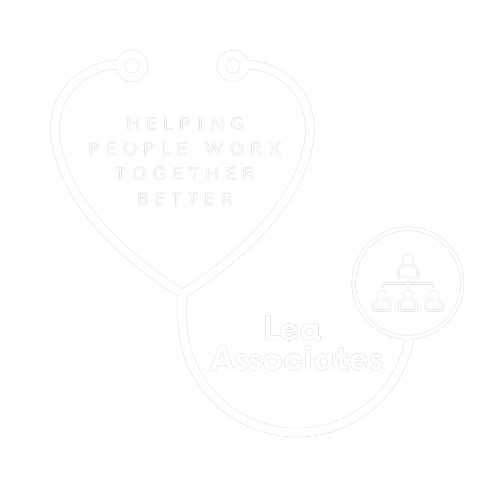Emotions and Resilience in the Workplace During COVID
Emotions and Resilience in the Workplace During COVID
Negativity and Stress in the Workplace
Transcript:
Hey Kris, how's it going, Leanne? Good. We're here today to talk about the clients and organizations we work with and what we're noticing. Covid, so this is our coven series, so we're going to talk about emotions and resilience because we feel that that's coming up a lot, wouldn't you say, Kris, and actually
00:00:26 There are so many factors at play right now that we've never experienced, so we've got the pandemic, we've got fears about the economy, we've got isolation social isolation even though, yes, maybe it's fun to work at home sometimes, but it also has its drawbacks and then just in general a whole lot of stress I'm really yep seeing all that with
00:00:48 My clients, so you know, let I want to talk about uh emotions a little bit and give a story, and so one of the things that I've noticed that's coming up with more than one of my clients, and I'm sure it's true for many people that might be watching this is they've got someone on their team that is showing up with much negativity
00:01:10 In their communication, in their body language, and maybe this has been a problem for a while for them, but it's poisoning the team; the person is showing up snide comments under their breath comments, you know, uh even political comments and it's a real issue, and maybe they have addressed it in the past, but it's something that is getting worse have you noticed anything like that
00:01:34 Kris and just in general, I'll say there's a general degradation of civility and respect in many situations, so I have a little story; it's kind of from my personal life, but I think it applies to many settings in which where we are interacting with people that are providing service to us maybe we're doing business with them 00:01:58 But I was actually at Target the other day, and I had two bottles of wine and a little one of those little uh separator bags and it was positioned in such a way that the cashier accidentally knocked it over and all of a sudden there was a crash, and there was red wine all over the floor, and it was amazing because it was almost like the swat team of people the manager
00:02:21 I Came over, and he had a walkie-talkie, and then there was a guy with a mop and a tub, and another person came, and it was quite a coordinated effort to do this, and I was standing there in like complete awe of how they attack this problem, and he's like oh man don't worry and then all of a sudden he stopped, and he looked at me so sincerely in the eyes
00:02:42 And he said I want to thank you for not yelling at our cashier; wow, and I said of course not; it wasn't her fault, and I think it was my fault because of where I put the bag, and so he said but you won't believe how many people yell and scream at the cashiers nowadays wow, and I was like
00:03:09 This, I mean, she was a young, really young gal. Of course, no one deserves to be yelled at, but, to me, this is a sign of really increased stress that everyone is experiencing and also the need for us to really take a deep breath and remember that people are in service to us in all different types of ways in our lives and we're working with people and that it's so important um to be kind
00:03:37 Right, and it's very, very important. people are showing up with stress, and they're taking it out on others, and so we all need to remember that, uh, and then in the workplace, if you have somebody that is acting that way, it's really as we said, like it's poison to the team right and so let's offer a tip let's offer
00:04:03 something that people can take away from this and what I would like to say on that point is that if you have someone, you know, if it's a new problem, if it's been an ongoing problem, either way, it really takes direct communication, and it's, more importantly, a performance metric how people communicate in the workplace is a performance metric, and I'm not sure how much people are
00:04:32 Thinking of it in that way, Kris, you want to add, and it was, in terms of a performance metric, I would say the person that was a supervisor of the coordination of this mini cleanup swat team, he was an excellent supervisor because what he was doing although he was interacting with me and he was interacting with the people that were
00:04:53 Helping to clean up, he was showing support to his staff members, so this guy, this young girl that was a cashier, through visible support of her, he bolstered who she was and comforted her because I'm sure if she'd been yelled at before she was probably prepared for that from me but the fact that he was giving her accommodation and and
00:05:21 Thanking me for all of that was kudos to her, and it was not exactly the typical type of coaching, but it was an interaction with me as a customer sort of in a triangular way that was supportive of his employee, and I would I think that that's so powerful and so important for uh managers to do that to do support their employees that way
00:05:48 Great great points Kris and so then in, in some of the places where you and I work, for clients and organizations, I would say the relationship to those issues that we're seeing are that is that a manager, if you see somebody consistently behaving in that negative way bringing that negativity which is contagious, it's an energy that will
00:06:10 Spread across your team, you need to deal with it right away whether that is in public right there in the workroom, or in the office space or whether that's in private that's for you to decide that's a contextual thing however what is evident in the uh in what you offered Kris is that you do need to protect your other employees from that
00:06:33 In whatever that appropriate way is, it's just it needs to be dealt with, and you may or may not, be dealing with that at the level that you need to right now with all the stress going on right, and that is the courageous conversation is to be able to jump in at that very moment and say the right thing right and because there are times that there's a very short window of
00:06:56 time that these kinds of conversations are the most effective mm-hmm exactly so we're going to dig into this topic more uh in a next episode where we're going to deal more deeply with emotions, but please take that tip away that think of it as a performance metric Kris is going to tell us about the future series that we're going to do here
00:07:15 so we have four more modules coming up, so the next one is going to be a deeper dive on emotions; then we'll talk about relationships and the pandemic, what's happening with all of our relationships and flexibility in a family and then we will talk about performance management a little bit, so that's series, so each of those will be a separate topic
00:07:36 And uh, we might add another one just in case, uh so we'll see; so please join us, hit the subscribe button to make sure you get all of our future content and thank you so much for listening to us here at courageous conversations see you next time bye.

Post by Dr. Kris Lea
Meet Kris Lea - an experienced consultant, facilitator, and trainer with expertise in OD, OCM, T&D, and Project Management. Kris empowers organizations to overcome challenges and achieve goals. As the founder of Lea Associates LLC, Kris is committed to building long-term client partnerships and delivering exceptional value.

